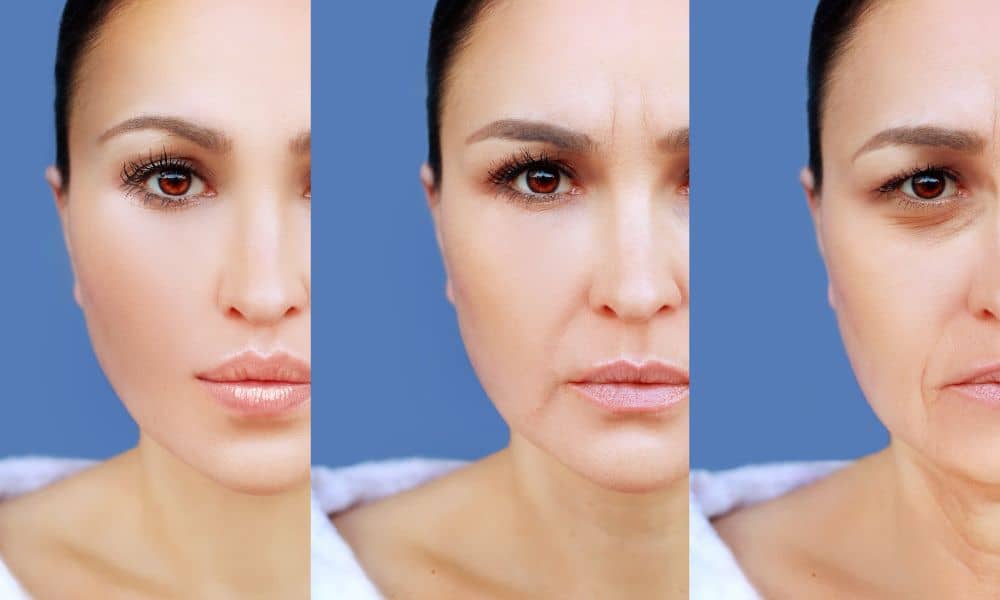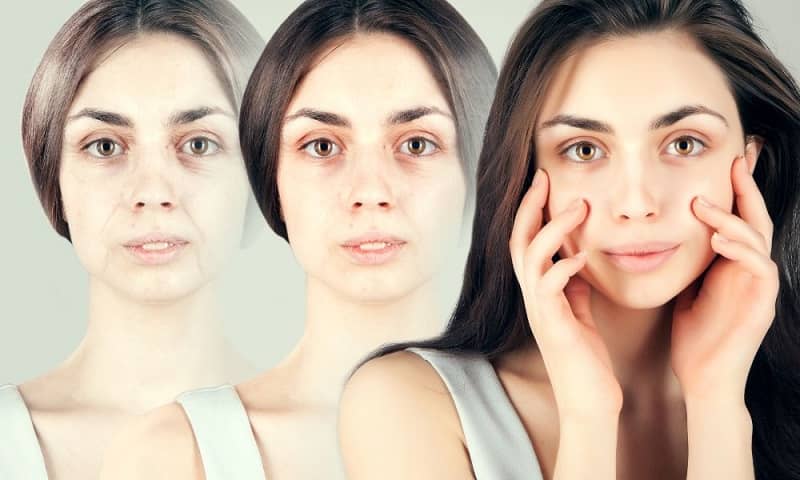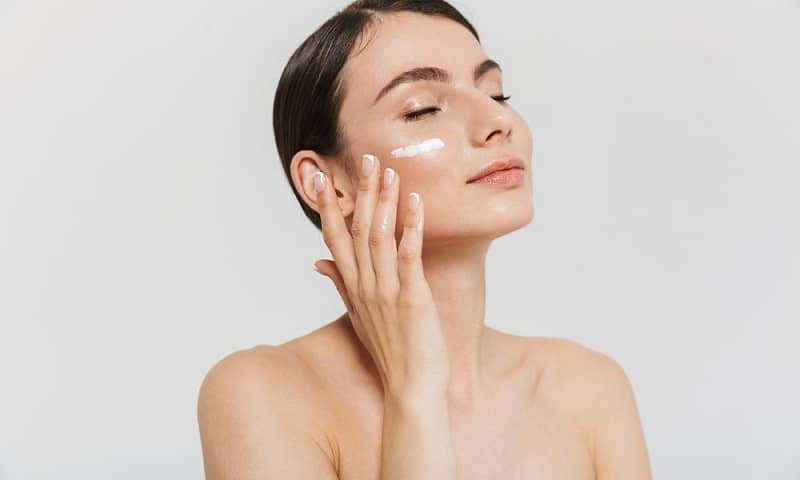


23 Aug Science Reveals You can Slow Down Aging | 4 Natural Ways
Can you really put a stopper on the aging clock or are wrinkles just inevitable?
Aging is that phase of your life where your body sees a physiological decline owing to several metabolic and environmental changes.
Based on the factors that contribute to aging, it can be categorized like this:
- Cellular aging – Because of the biological aging of the cells. As the cells age, they lose their main functions and hence contribute to aging and eventually death.
- Environmental aging – Because of the extrinsic factors like pollution that cause the early death of the cells.
Looking at the natural phenomenon of aging and the new findings, the question can you slow down aging creates ripples in the world of genetics and biotechnology.
But science doesn’t fall behind, and hence has finally something to say about this!
Yes You Can Actually Slow Down Aging, According to New Science – Biological Aging
Earlier studies that explored the aging process and ways to slow it down didn’t have much technology.
But with the help of the latest tech, the vast information on genetics, and medical profile, here is what science has to say.
Study I – Diet and Lifestyle Changes can Potentially Reverse Biological Age
The study was based on Horvath’s DNAmAge clock which is used to read the patterns of DNA methylation as it could easily show the biological age of participants.
This study was a randomized controlled clinical trial conducted for 8 weeks among 43 healthy adult males.
These participants were from the age groups of 50 to 72 years.
Throughout the 8 weeks of treatment, there were improvements made in the following sections of lifestyle:
- Diet – plant-centered, rich in nutrients, restricted carbs, fruits, and vegetables were included.
- Sleep – at least 7 to 8 hours of sleep in a complete day.
- Exercise – minimum 30 minutes of exercise per day for 5 days a week with an intensity of 60 – 80%.
- Relaxation – twice a day breathing exercises were planned for alleviating symptoms of stress and similar conditions.
- Probiotics
- Phytonutrients
The results were nothing short of amusing.
Results:
The saliva samples were collected from the participants for the DNAmAge readings and the following results were obtained:
- The group put up on the 8-week treatment program showed 3.23 years decrease in damage clock.
- Post completing the program, on average the treatment group showed a decrease of 1.96 years in the DNAmAge clock.
This showed that a specific type of diet and a healthy lifestyle can slow down or reverse the biological age.
However, more large-scale studies are still required to lay up strong opinions.
While this study suggested simpler changes, like in lifestyle and diet, there is another study focusing on animal models that suggests genetic switches as a way of delaying aging.
**This study was published in the Open-Access Impact Journal on Aging.
Study II – Reprogramming Old Cells can Make Them Young Again


A work published in Nature on the 2nd December 2020 suggests that reprogramming DNA can make cells younger.
This work was based on a study where vision was restored in old mice and mice with retinal nerve damage by reprogramming cells.
Reprogramming was done by resetting chemical marks that gradually accumulate on DNA as aging processes occur.
This helped in making the cells younger, which increased their ability to repair tissue.
Hence, the chances of biological changes helping in regulating aging become high post this study.
But researchers suggested that more research was required as it was a clinical trial on mice.
Apart from biological changes and lifestyle factors, another prominent help in dealing with aging comes from senolytics!
Here is how.
Study III – Senolytics can Decrease Old Cells in Humans
Senescent cells or old cells can accumulate at different sites in the human body during any chronic disease.
This increases aging as these cells can release inflammatory products which cause early aging of non-senescent cells.
The following study showed that senolytics, which is the combination of Dasatinib and Quercetin, can selectively act on these senescent cells and decrease their burden.
Observations were made by conducting adipose tissue and skin biopsies along with blood collection before and after 11 days of the senolytics treatment.
According to the results, the combination reduced the senescent cells number and adipose tissue macrophages.
This showed that the oral combination was able to reduce the senescent burden and hence prevent early aging because of chronic disease.
Since cellular senescence (loss of division and growth) is a major contributor to aging, targeting it can also reduce the risks of age-related diseases and hence delay aging.
But looking at such a broad target of studies, an important question for a layman revolves around how to slow down aging naturally.
So, based on the above studies, what really is in our hands is only lifestyle and diet changes.
Hence, here are a few tips to help you slow aging.
How can You Slow Down Aging? [4 Natural Ways]



As per the recent study that helped reduce the damage clock, the main target areas for slowing down the aging process should be:
- Diet,
- physical activity,
- sleep, and
- lifestyle.
Based on these target areas, here is how you can prevent yourself from aging quickly.
#1. Diet
Aging is mainly because of the inflammatory products released by the old cells that affect new cells and cause their early senescence.
Eating a diet full of inflammatory foods also affects the telomere cap that protects the DNA from losing its functioning.
The shorter the telomere, the older the cells become.
Thus, the first rule of anti-aging is to avoid inflammatory foods as much as you can and focus on anti-inflammatory foods for longer telomeres.
Anti-inflammatory Foods for Your Diet include:
- Fruits rich in vitamin C like strawberries, oranges, and other berries.
- Leafies for rich nutrient intake
- Fishes containing a rich amount of omega-3-fatty acids
- Nuts full of vitamins and minerals
ALSO READ: Foods to Fight Inflammation Naturally
In addition, you must also cut back on some food items.
Inflammatory Foods to Avoid are:
- Diet rich in high amounts of food should be off your shelves, like high fructose corn syrup found in your favorite pastry and baked sweetness.
- Fried foods and processed foods that contain trans fat, for example, donuts.
- Unhealthy carbs like the refined carbs present in most of your morning cereals and bread rich in white flour.
- Excess of omega-6-fatty acids. Say no to your favorite salad dressings like mayonnaise for a healthier life.
Also, focus on a diet that has very less calories and carbs in it.
Once you have your diet pinned down, the next step is to plan out some healthy physical activities to support your diet.
#2. Physical Activities for Longer Telomeres
There are two advantages of daily exercise.
- First, it keeps you away from many health threats,
- secondly, it can stimulate the lengthening of telomeres.
As you know that telomeres serve as protection for your DNA, here is what you can try to delay natural aging:
- On the off chance you have a desk job, try taking 30 minutes of a break now and then to move around a little.
- You can try walking while talking on your phone, switching from elevators to stairs, and avoiding vehicles for short distances.
- Perform daily intense chores like gardening for healthy movements.
- To take it up a notch, try out cardio or aerobic exercises for 150 minutes each week.
- Strength training can be a good start for both your muscles, heart, and aging process.
- Try breathing exercises for keeping yourself relaxed and free from stress and anxiety.
The next (and often underestimated) step of managing a regular schedule for delayed aging is a healthy sleep cycle.
#3. Sleep Well
Not having a healthy sleep cycle already risks your body against mental and physical diseases like anxiety, depression, and obesity.
Hence, keeping your sleep hours free from any disturbance becomes vital.
Here is what you can do to keep your sleep schedule healthy:
- Scheduling sleep cycle: Instead of having different sleeping hours on different days, keep it well scheduled as it will help your biological cycle be well aligned.
- Bye-bye technology: Alarms are welcome, but social media just before bedtime is a no-no. Mobiles and tablets emit blue rays of light that mess up with your biological cycle and hence delay your sleeping hours.
- Light matters: Either sleep in dark rooms or rooms lit with dim lights that help you sleep. Certain wavelengths of light can activate your biological cycle to make it feel that the sun is up. Hence, go for wavelengths like the red light to help you sleep.
- Cool and dim environment: Instead of a bright bedroom, keep it dim and cool enough to help you relax. If your bedroom stays active, your body stays active.
Moving on to the next area of concern is your alcohol drinking habit. While diet and exercise have already added great value, there are a few more things to check on.
#4. Drinking Habits
Lifestyle is not just about walking and eating but also about being free from addiction.
According to studies, chronic alcoholism is one of the best ways to speed up your aging process and also invite several cognitive disabilities.
Plus, alcoholism can lead to numerous health disorders including cardiac diseases, liver disorders, depression, anxiety, and a lot more.
What you can do to avoid all such health hazards are:
- Limit your drinks below 3 for men, and less than 2 for women a day. A single alcoholic drink can be 12 ounces of beer or 8 ounces of liquor.
- Try drinking occasionally rather than daily.
Now, these were all the factors that could help prevent the intrinsic factors of aging, but there are also extrinsic factors that can accelerate aging.
These extrinsic factors are mainly environmental and affect the skin first!
Thus, protecting the skin from these factors slows not just skin aging but also biological aging.
Here is how you can protect yourself from external aging factors.
How to Slow Down Aging Skin – Extrinsic Aging
Skin aging is because of mixed intrinsic factors like the accumulation of chemicals on DNA and shortening of telomere as well as environmental factors.
While delaying biological aging to some extent helps slow down skin aging, there should also be a good amount of protection from extrinsic factors.



Here is how you can prevent the external factors from aging your skin and body:
#1. Skin Care
Daily skin care restores the skin’s elasticity, structure, smoothness, and framework. It also helps in keeping your collagen and elastin right in place to avoid seeing early wrinkles.
For healthy skin care, you must focus on:
- Daily moisturization for keeping the cells hydrated
- Protection from the UV to protect from sun damage. Try going for a good SPF enriched sunscreen.
- Cleansing to remove the deposition of dust and prevent damage from the pollution.
- Exfoliate to clear off the dead skin cells clogging your pores.
ALSO READ: Why does skin lose elasticity with age?
In addition to this, you can also include some anti-aging actives in your skincare routine.
#2. Topical Agents with Anti-Aging Properties
There are two types of products that you can go for to reduce the aging signs:
Cell Regulators: They stimulate the formation of collagen and elastin.
- Vitamin A (Retinoid/retinol)
- Polypeptides
- Botanicals
Antioxidants: They help reduce collagen degradation and thus maintain a good skin structure.
- You can look for Vitamin C, B3, and E in your anti-aging products for greater results.
- Vitamin A and its derivatives too work great as antioxidants.
Other than these natural remedies, there are also invasive procedures and chemical peels that work well for disappearing the aging signs.
Though, they don’t work on skin aging from the inside.
Conclusion
Science suggests going for changes in your lifestyle, diet, and sleep can answer how you can slow down aging on your face and your body.
Well, you probably already know that. Specific changes in these areas of your life can help reverse your biological clock and keep you feeling young.
But other than these changes, science is also suggestive of DNA switching as an active way of rejuvenating cells.
There also exist medications that can reduce the effect of old cells in your body and help fight aging during chronic diseases.
Yet, we need more large-scale research on these controversial topics.
I would love to hear your feedback too. Please join in the comments section for any queries or suggestions.



No Comments